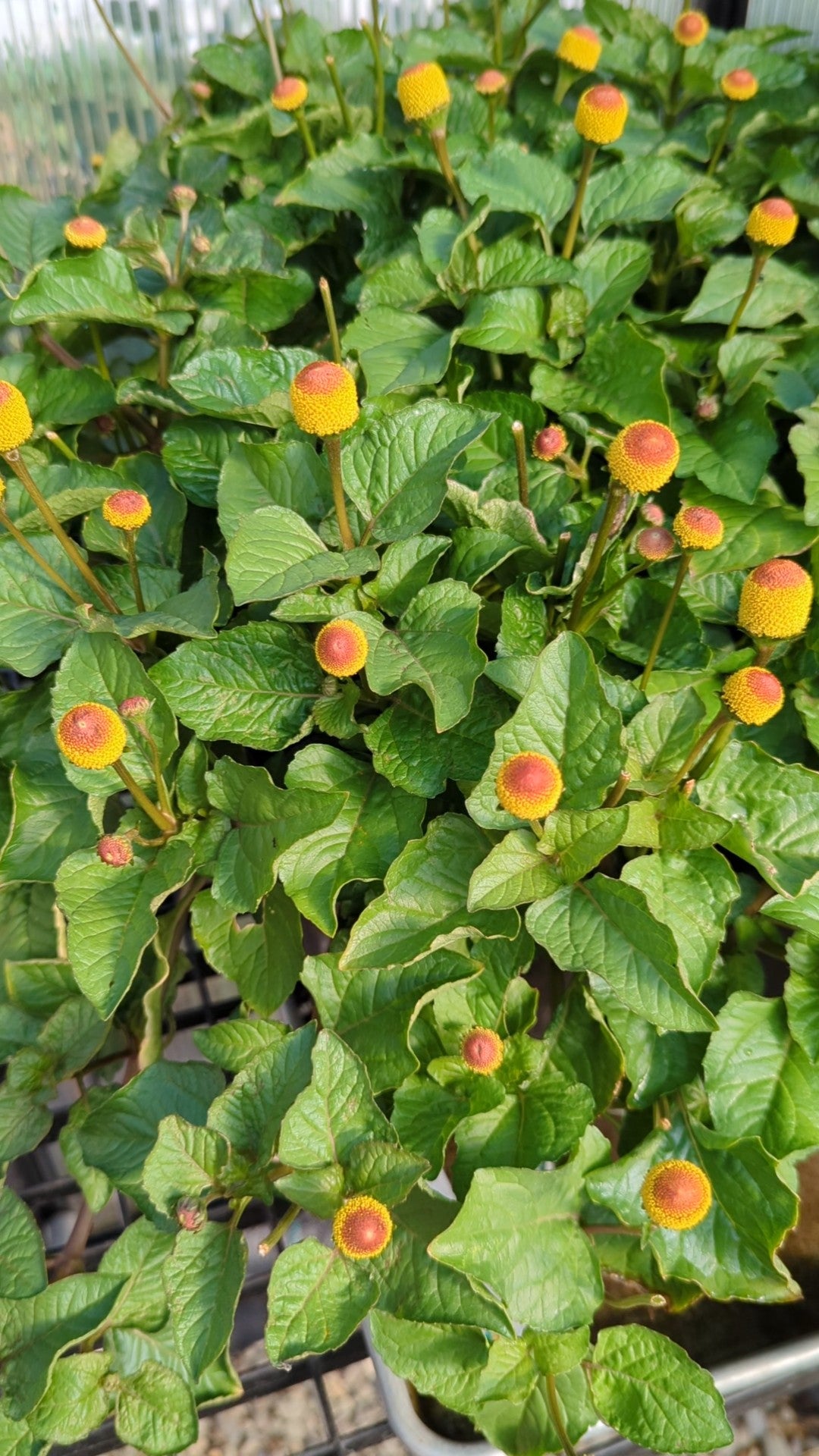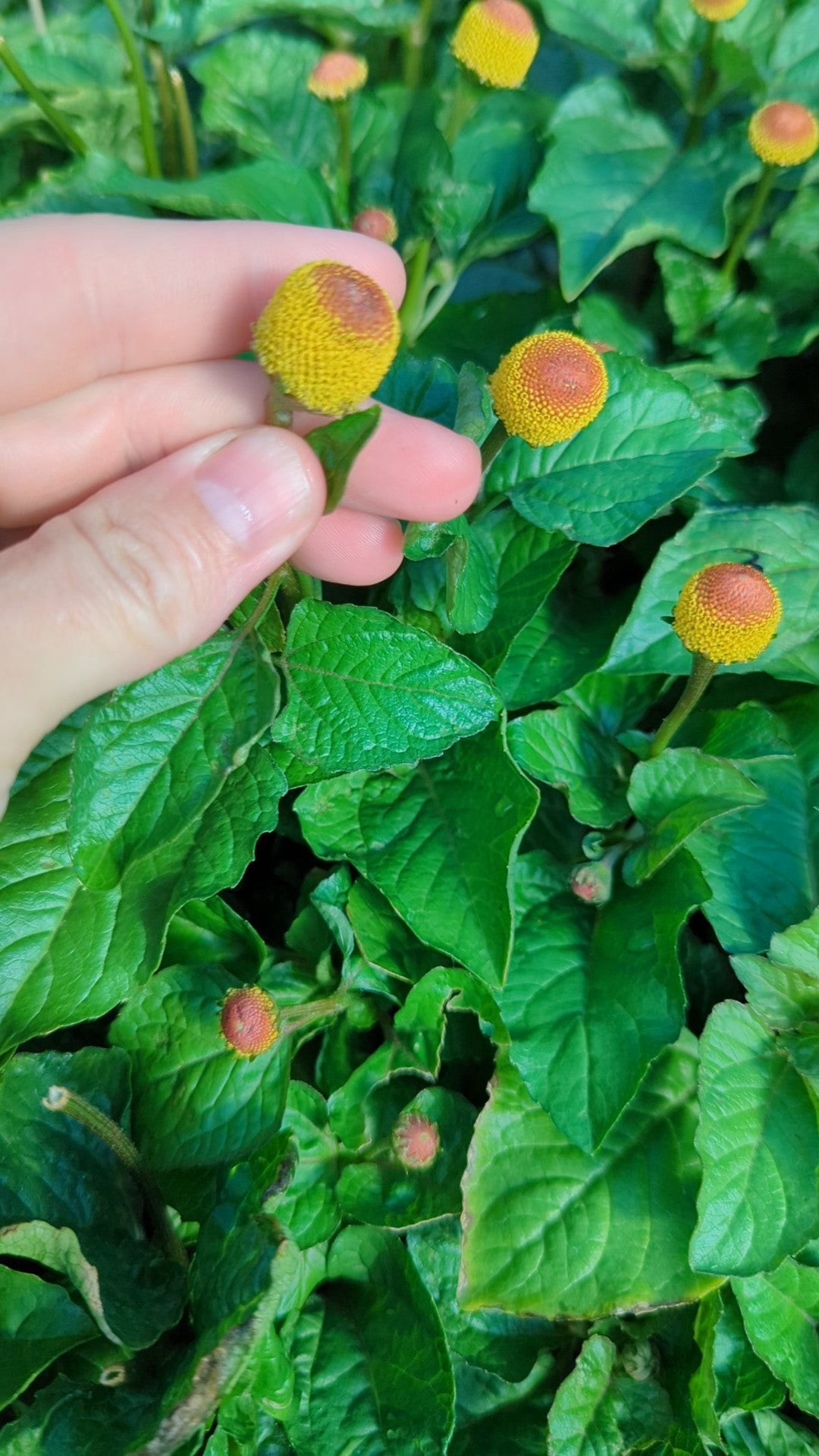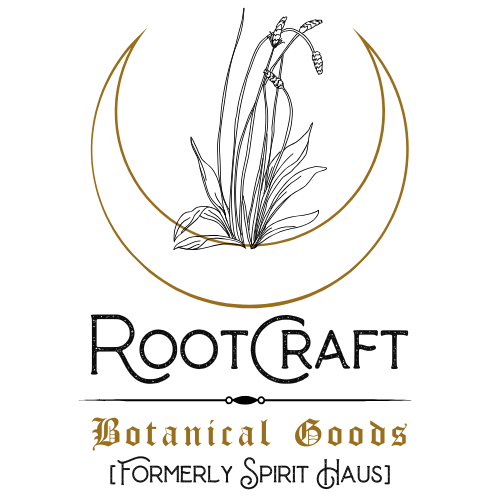Spilanthes Seeds | Acmella oceracea/A. alba
Spilanthes Seeds | Acmella oceracea/A. alba
Couldn't load pickup availability
Spilanthes, aka buzz buttons, electric daisies, or toothache plant, is a widely popular medicinal plant in India and South America.
It has pungent-tasting flowers and leaves that, when tasted, bring a powerful tingling sensation and numbness. This lends to its use as an analgesic for tooth and mouth ailments, but the entire plant is also worked with for its antimicrobial and immunostimulant properties.
Approximately 50 seeds, harvested for 2025.
Grown using only compost, water, & organic fertilizer, our plants are never treated or sprayed with anything at all.
Lifecycle: Perennial
Zones: 10-12, otherwise grown as an annual with 120 days to maturity
Region: Native to Africa and South America
Actions: Immunostimulant, antimicrobial, anti-inflammatory, sialagogue (promotes salivation), lymphatic, analgesic, antipyretic, vasorelaxant, astringent, diuretic
Parts used: Young flowers, root, stem, & leaf.
Planting: Start seeds indoors in early spring and transplant outdoors well after the last chance of frost. Pinch back growing tips to encourage a fuller plant. Grows well in containers.
Spacing: 12-18"
Location: Spilanthes prefers full sun, plenty of water, and warm temperatures, much like its native tropical climate. Does not tolerate temperatures below 60F
Germination: 5-12 days
Our Seeds
The majority of our seeds offered are saved from our small medicinal plant farm right here in the Cascade foothills of Oregon's Willamette Valley.
Our plants are grown only with water, compost, & organic fertilizer. Never sprayed with herbicides, pesticides, synthetic fertilizers, or anything else.
There are some seeds that we have not been able to harvest in abundance ourselves yet, so these are provided by a farm here in Oregon that is certified organic by the USDA and Oregon Tilth.
Important
Always check with local authorities (such as your county extension) to see if non-native plants are invasive or noxious in your region.
Noxious plants are illegal to grow and cannot be shipped across state borders. Invasive species should never be intentionally planted, but should be harvested from the wild instead.
They may hold medicinal value but they can destroy native ecosystems and habitats. There are likely less destructive alternatives with similar medicinal value that you can plant.




